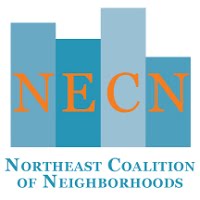The bell strikes at 2:30 PM and the hallways of Rosa Parks Elementary fill with kids from all directions. Some are going home, others to play sports, and about two dozen of them, mostly first and second graders, trickle into a room off the main hall that’s lined with cellos, drums, and violins. This is the home of Bravo Youth Orchestras, a non-profit organization that runs music programs in several North Portland schools.
The instructor and site director here, Cecille Elliot, sits in the circle with a guitar strapped around her neck and leads the kids through a catchy rendition of a song about all the state capitals. They’ll be here for two hours today, as they are every week day, and in the evening the kids will go home having gotten their dose of a part of childhood education that has been endangered for a long time: music programs.
The negative effects of the restrictive tax laws that were passed beginning in the 1990s continue to have ripple effects today, and they are felt most heavily in schools where arts programs tend to be the first to get cut. But a lesser-known aspect of the issue are the variety of non-profit organizations that have stepped in to fill that gap and are working to ensure that arts and music education is available for the kids who need it most.
Another such organization is Ethos, based in a building at the corner of North Killingsworth and Williams. Founded in 1998 as a response to the passage of those ballot measures, Ethos operates in 13 schools across the city, largely in inner North and Northeast. Scott Moore, Executive Director of Ethos, says that first and foremost they go where they’re needed. In the Portland area, that means partnering with schools that serve primarily lower-income students, as these are often the schools with the largest funding gaps.
Ethos’ reach extends far beyond urban Portland as well. Through an innovative partnership with Americorps, their Rural Outreach Program targets similarly-lacking schools throughout rural Oregon. Between these urban and rural programs, close to seventy-five percent of the students served by Ethos are low-income. In addition, even the full cost of the program for students who are able to pay is well below market rate. “We know that the programs we’re providing are never going to be a substitute for full time music instruction,” he says. “But it’s filling a hole.”
That hole is far greater than non-profits alone can resolve but organizations like Bravo and Ethos are undaunted by the challenge because their impact is undeniable and the stakes are high. “We know that students perform better academically and behaviorally when they have access to music education,” says Moore. “If we think about education and childhood development, then [music education] is absolutely fundamental.”
Bravo’s Elliot says that seeing the children grow through music is one of the most gratifying parts of the job: “If a student is struggling with one specific area then suddenly it clicks, those are some of the most exciting moments because they get to see their hard work paying off.”
Thankfully that hard work is available for the public to see. Both Ethos and Bravo, and other organizations around the city, perform regularly at events around the state including the state capital and city hall, and are available to be booked. Portlanders, and Oregonians in general, clearly think that arts and music programs are valuable to a child’s well-being.
But until policy can be changed at the higher levels, it will be up to non-profits organizations to continue to put an arts education for students within reach.
— By Mischa S. Webley, NECN Staff Writer

